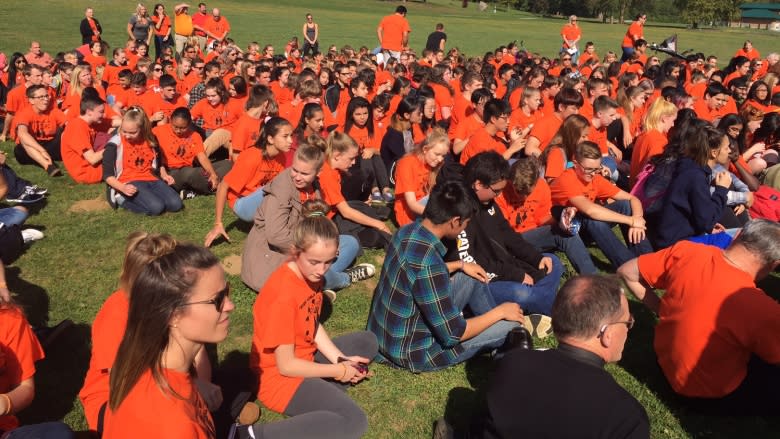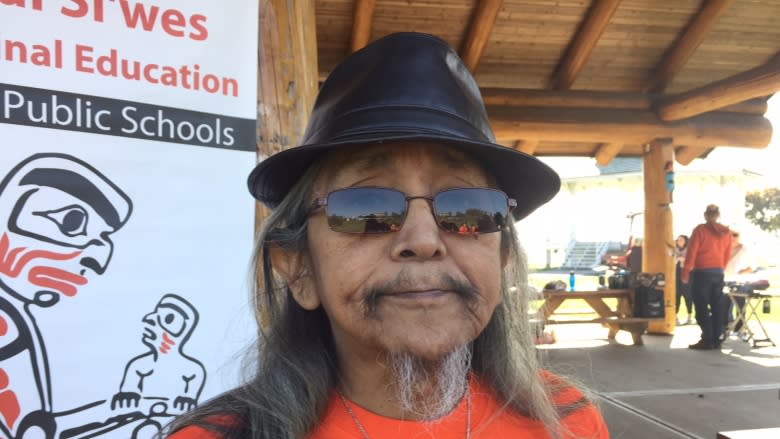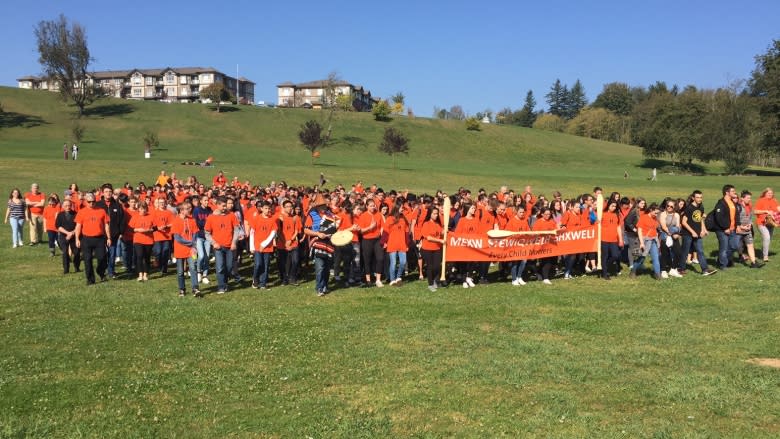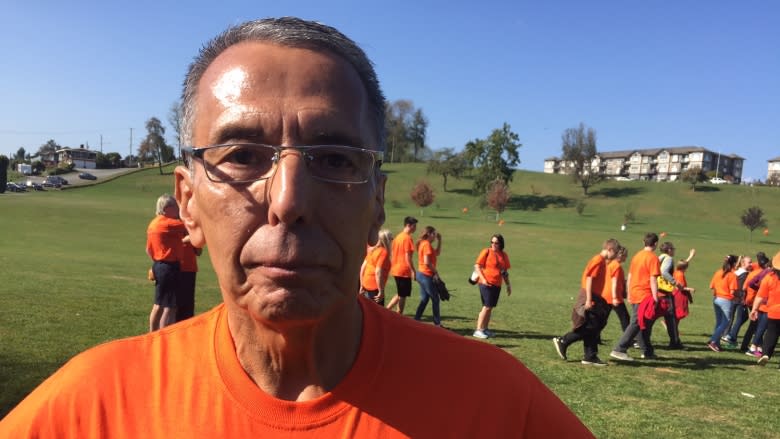Mission students mark Orange Shirt Day with march to honour Native elders
Several dozen students dressed in orange T-shirts marched down a hill at Heritage Park in Mission, B.C., to meet and hear from Native elders who attended a residential school that existed on the land until 1965.
The students were from six schools in the area.
A Native elder drummed and chanted as the group made its way to an area steps from where the boys dormitory used to stand at St. Mary's Native Residential School, which was demolished in 1965.
"This is not where you would send your kids," said Neil Phillips, 65, a former student at the school.
"Our shower was a dungeon. We had to pick up a big door, open it up and then go down into the cellar, walk across the mud to get to the shower.
"I don't come here unless I have a good reason to, such as this, because I don't have really good memories of this place," he told the students.
Orange Shirt Day
The youngsters had gathered to mark Orange Shirt Day which was created three years ago as a way to remember what happened to Aboriginal students at residential schools.
The students studied the topic over the past few weeks in preparation for the meeting with the elders.
"We had pre-teaching that went out to each and every classroom which was grade-specific, including a documentary we made from one of our residential school tours beforehand," said Joseph Heslip, district principal for Aboriginal education.
Lots to learn
The students were quiet and solemn when Phillips told them, "Where you are right now was a residential school."
"We're just here to pay our respects for those people who got very badly treated in these residential schools," said student Isabella Cedron after the event.
Many seemed surprised to hear the residential schools still existed two decades ago.
"It's insane that the last one closed 20 years ago. I hope it never happens again," said student Michael Krater.
Important not to forget
Joseph Michael Ginger is an Aboriginal elder who lives in Mission but grew up attending a residential school on Vancouver Island.
The memory of his experience is vivid.
"It was kind of one of loneliness, hunger, anger," said Ginger.
He was pleased to see that younger generations are interested in learning about what happened to him and others in the schools.
"They give us respect. It's great that they understand that it happened in this country and not too long ago," said Ginger.
"I think there's a lot of the population that don't know these residential schools happened in Canada."
Mission School District officials say this event was a pilot of sorts to see how it would be received by the students and the elders.
They plan for next year's gathering to include many more people.





